Air excavation offers a safer, more precise alternative to traditional digging methods. Whether you’re working around sensitive utilities, operating in tight spaces, or need to minimize site disruption, air excavation provides an efficient solution for your excavation needs. Below are answers to our most frequently asked questions.
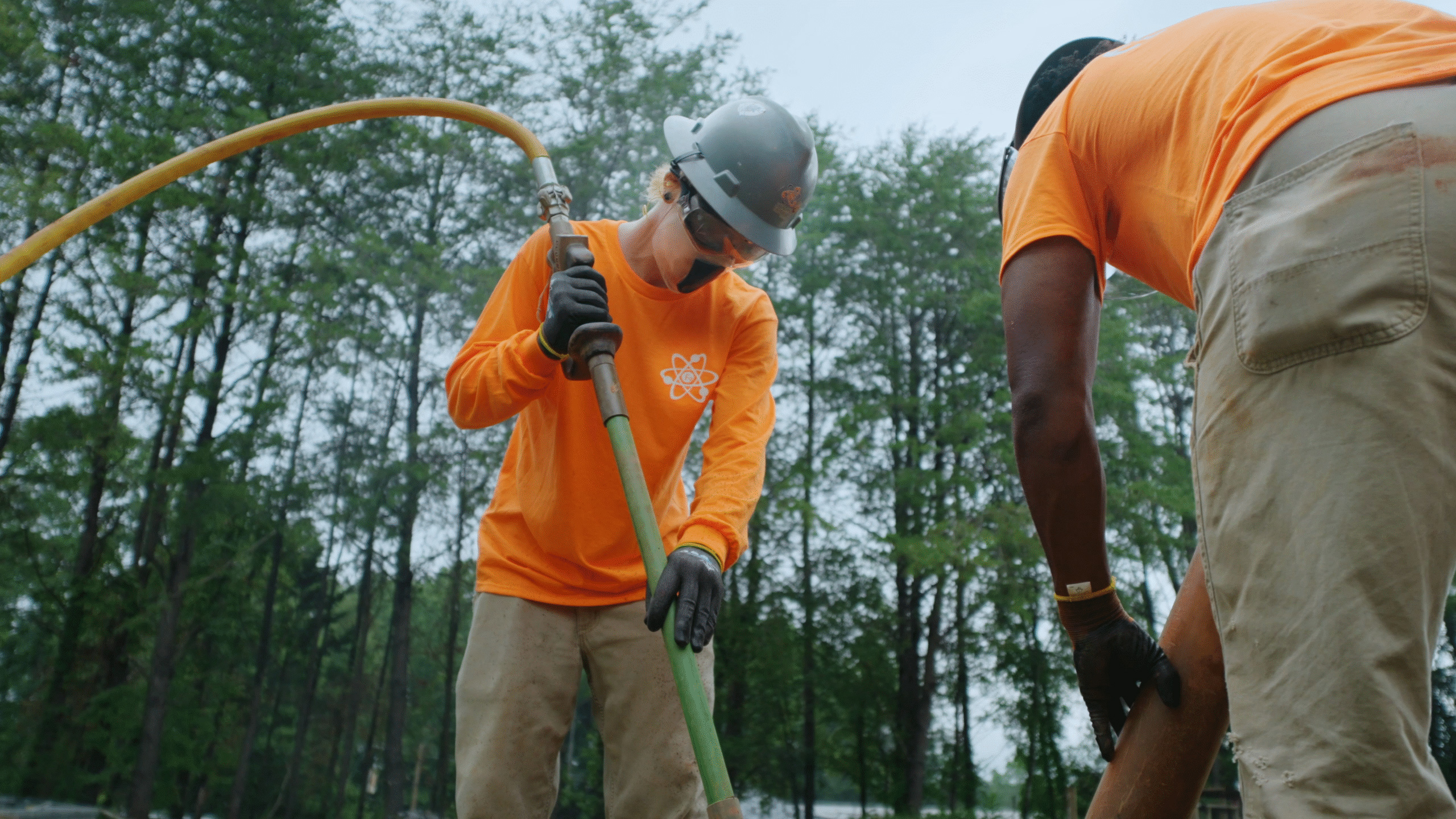
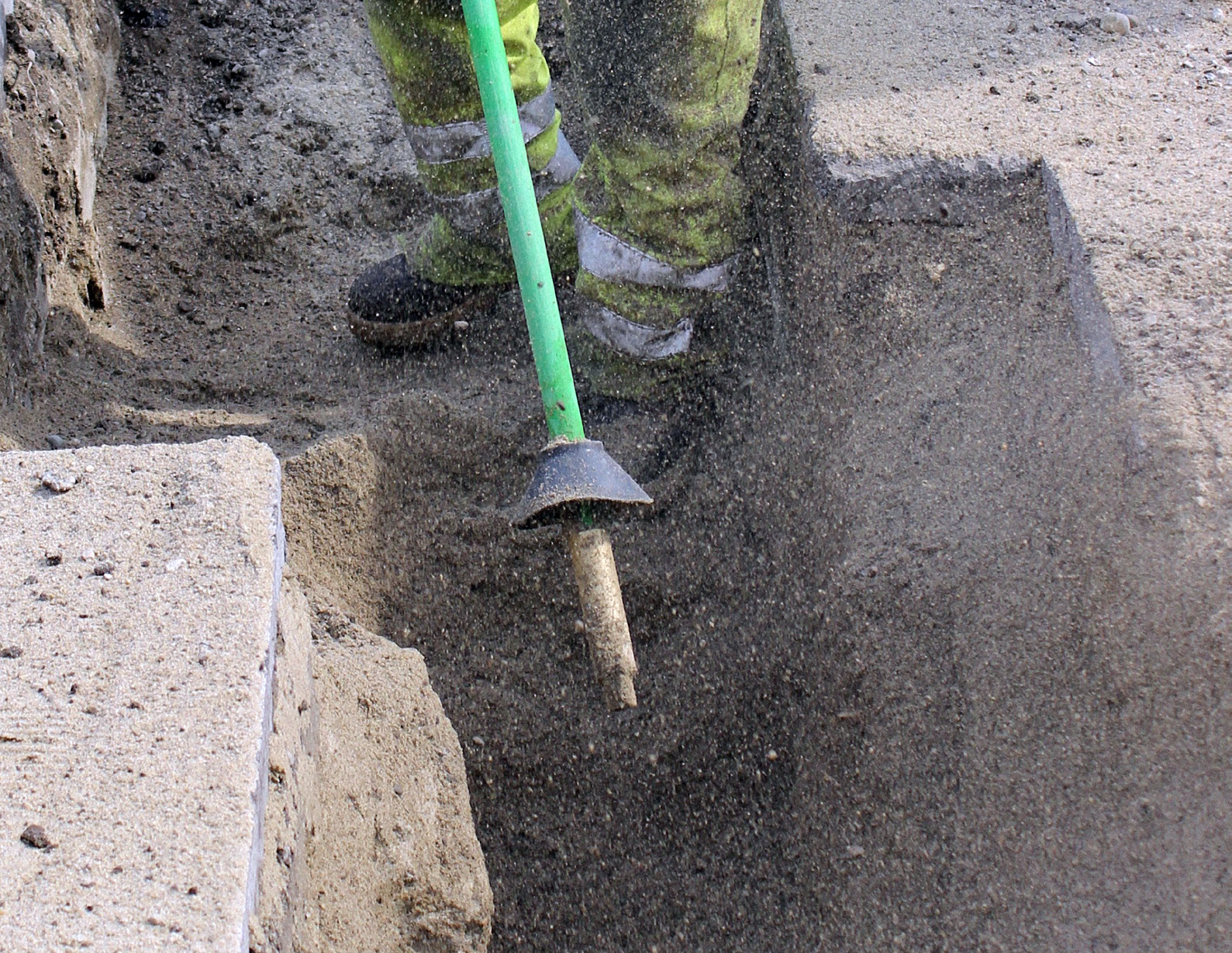

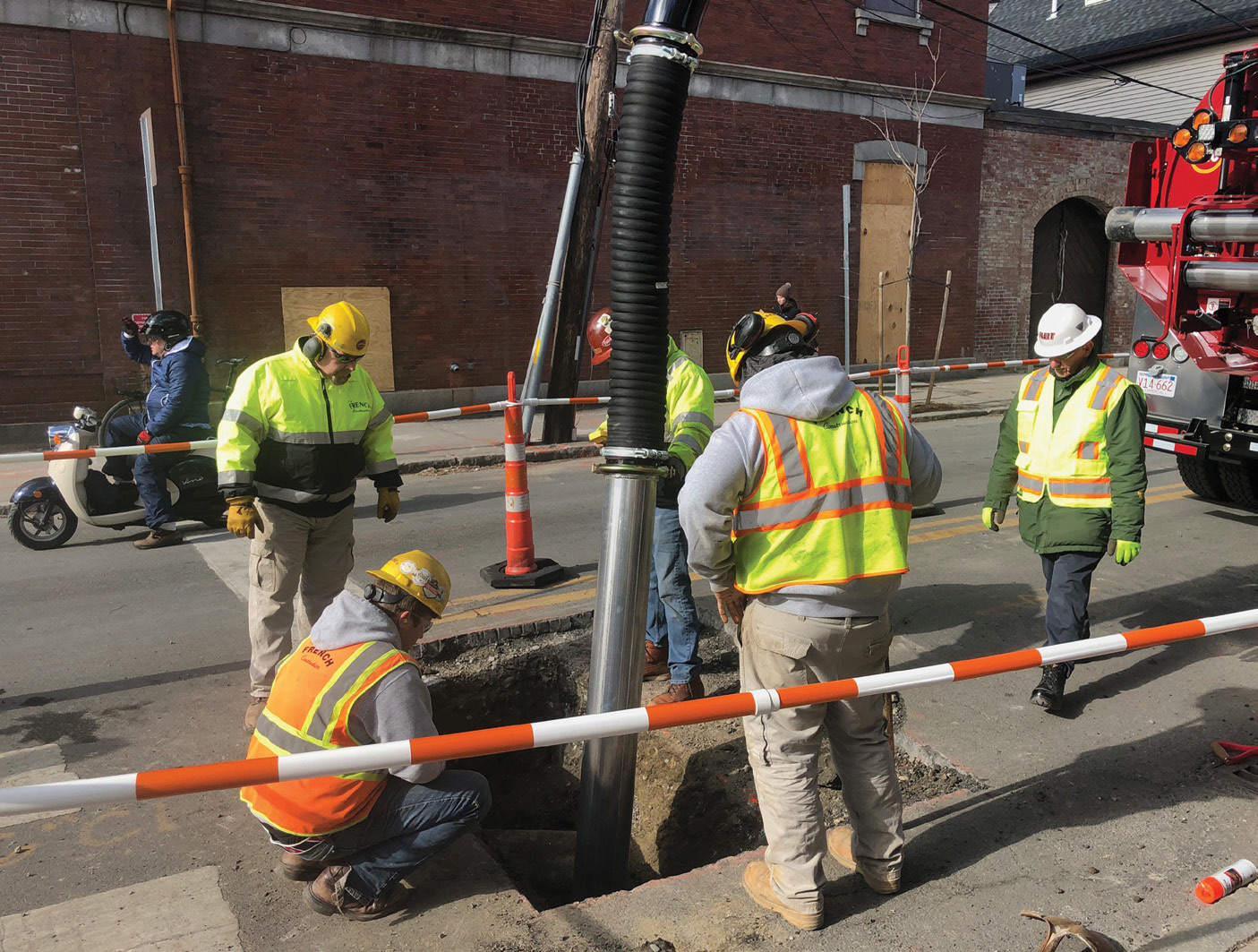
Discover how Fountain Electric can meet your air excavation needs with care and precision. Contact us today to discuss your project goals and to receive a customized plan tailored to your site and soil conditions.
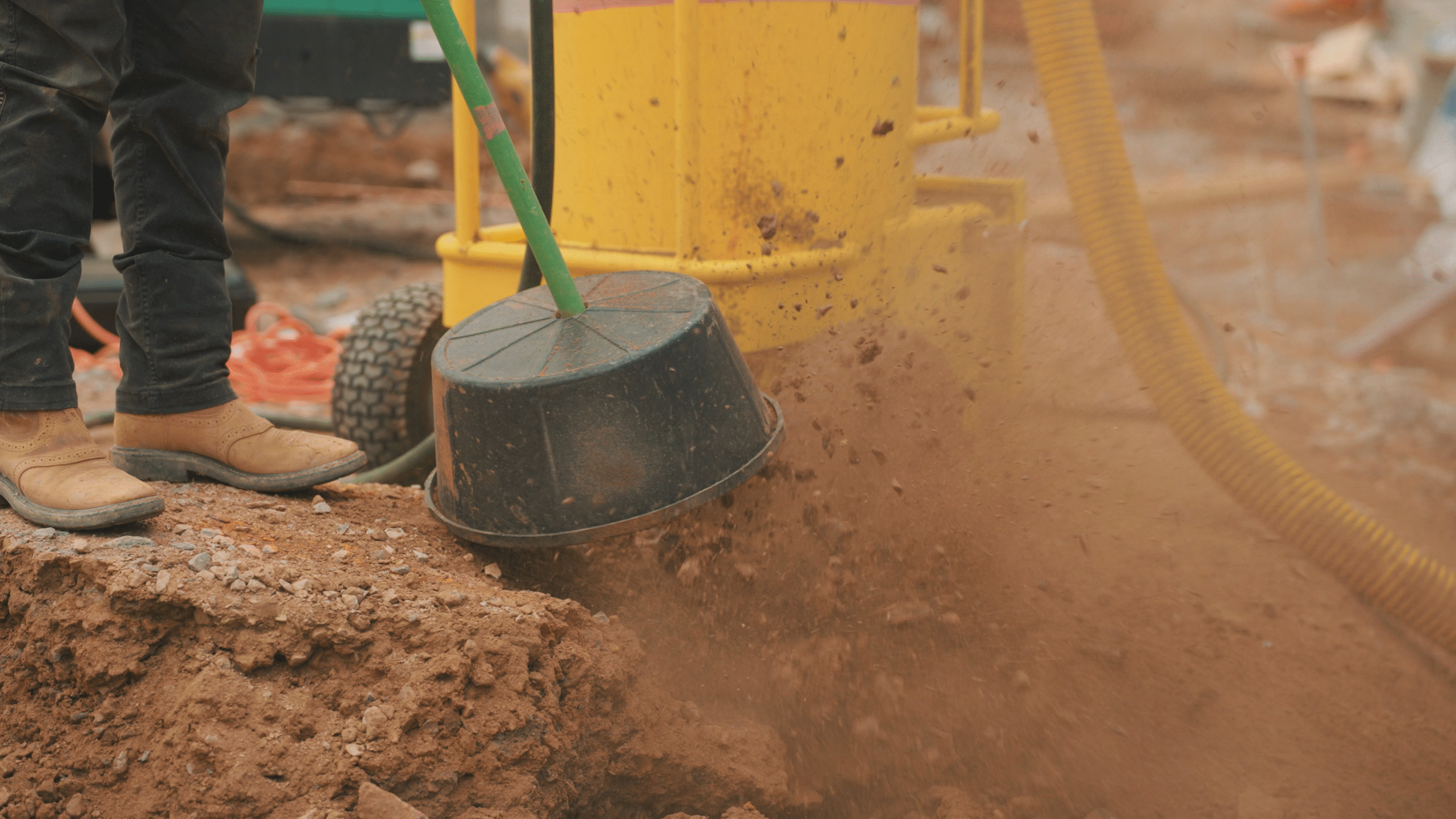
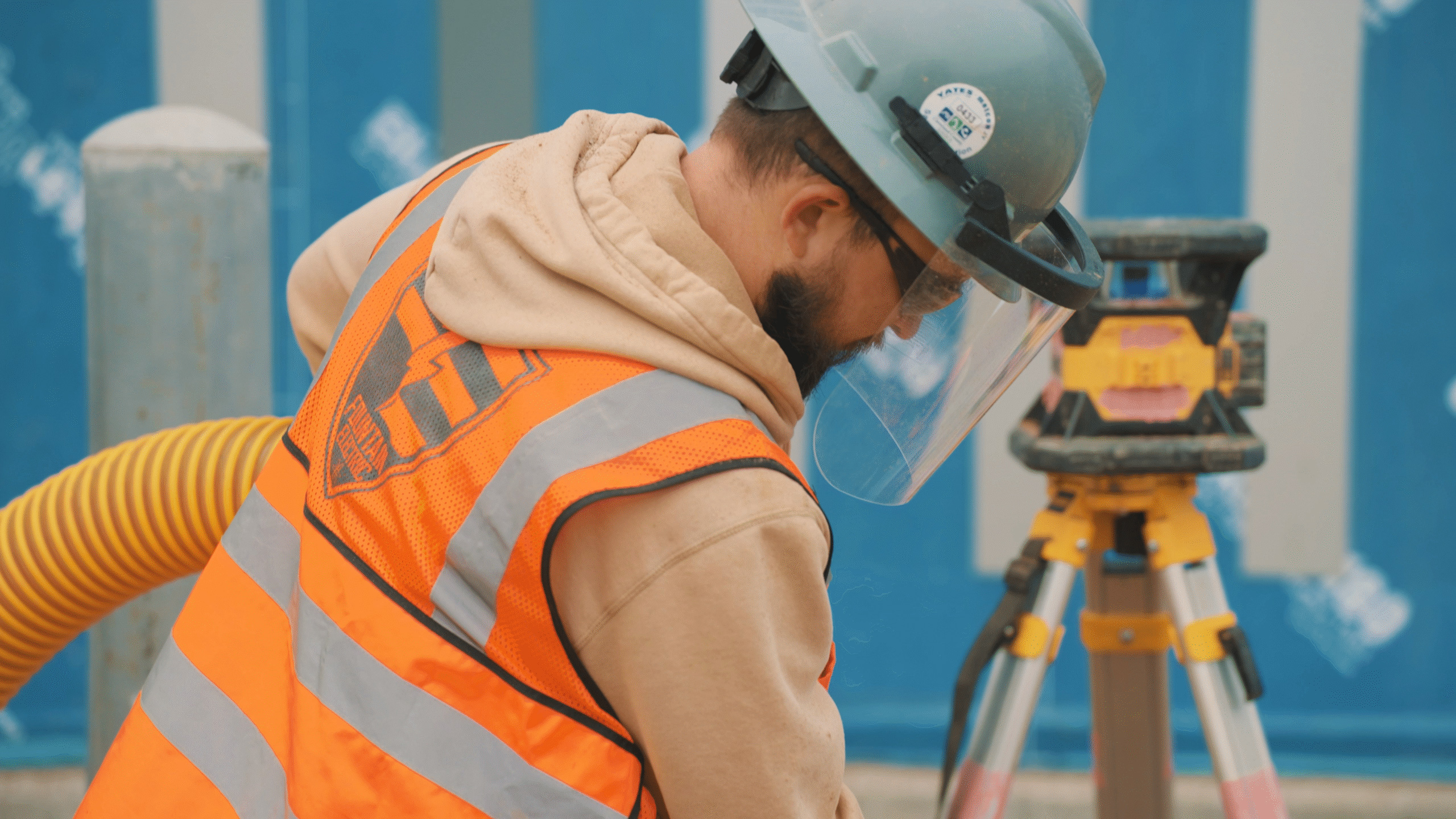
What is air excavation?
Unlike traditional excavation, which requires heavy machinery or a crew digging by hand, air excavation uses high-powered compressed air to remove soil from your dig site. Air excavation uses a specialized tool to funnel air from a high-powered air compressor into the ground. This breaks the soil into smaller, easier-to-remove pieces. A large vacuum is then used to suction debris away from the dig site, where it can be reintroduced after work in the area is complete.
What are the benefits of air excavation?
Air excavation allows workers to remove soil without the fear of damaging any existing infrastructure or disturbing the area outside of your dig site. Smaller crews can operate the tools without the need to bring in large machinery, which can be costly and disruptive to your job site. Air excavation is cheaper, more precise, efficient, and safer than traditional excavation methods for many applications.
When can I use air excavation on my job site?
Most job sites require digging of some kind. Whether it’s plumbing, buried electrical lines, or other utilities, chances are you’ll need excavation work. While nothing can replace a traditional excavator in terms of might and power, a precision touch is often necessary to effectively get the job done. Air excavation is ideal for tight spaces, digging around buried infrastructure, or when you are limited by crew capacity.
What types of projects commonly use air excavation?
Air excavation is commonly used for:
Is air excavation safe for underground utilities?
Yes, air excavation is one of the safest methods for exposing underground utilities. Unlike mechanical excavation that can cut through cables or pipes, compressed air gently removes soil without damaging existing infrastructure. This makes it ideal for utility location, potholing, and working near gas lines, fiber optics, water mains, and electrical conduits.
How long does air excavation take compared to traditional methods?
Air excavation is typically faster for precision work and utility exposure. While a traditional excavator moves more material in open areas, air excavation eliminates the time spent on careful hand-digging around sensitive infrastructure. Most potholing and utility location jobs can be completed in a fraction of the time with significantly less site disruption.
When is air excavation not recommended?
Air excavation works best with dry soil, which can kick up quite a bit of dust on the site if precautions are not taken. Because of this, it is not recommended to use air excavation on contaminated sites due to the risk of spreading contaminants. Heavily compacted soil, wet conditions, or very large dig sites might be better suited for heavy machinery, such as an excavator, or to be dug out by hand.
Can air excavation work in all weather conditions?
Air excavation works best in dry conditions. Rain, snow, or saturated soil can reduce effectiveness and create muddy conditions. However, we can often work around weather challenges with proper planning. Contact us to discuss your timeline and site conditions.
What size crew is needed for air excavation?
One of air excavation’s key advantages is its efficiency. Most jobs require only 2-3 operators, compared to larger crews needed for traditional excavation. This reduces labor costs and minimizes disruption to your site.
How much does it cost?
Every job site requires its own considerations. Air excavation is generally more cost-effective than traditional excavation because it requires no heavy machinery and can be operated by a smaller crew. We encourage you to speak with one of our experts to learn how your site might benefit from air excavation.
Do I need any special permits for air excavation?
Permit requirements depend on your location and project scope, just as with traditional excavation. We recommend checking with your local authorities. Our team can help guide you through the permitting process and ensure your project meets all local regulations.
How do I get started with air excavation for my project?
Getting started is simple: